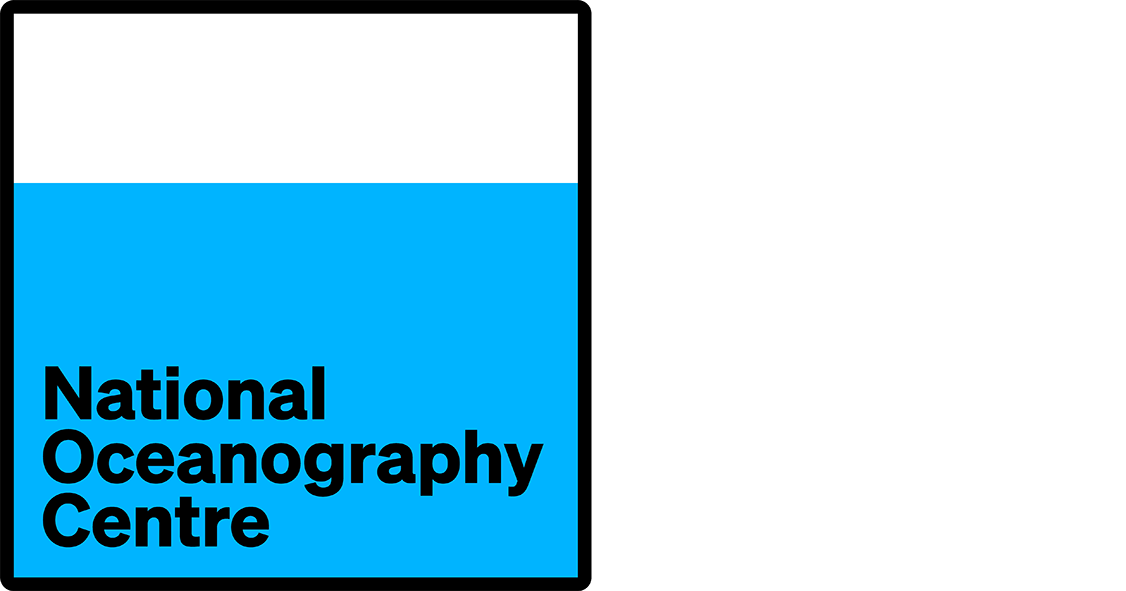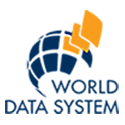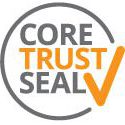Metadata Report for BODC Series Reference Number 2052103
Metadata Summary
Problem Reports
Data Access Policy
Narrative Documents
Project Information
Data Activity or Cruise Information
Fixed Station Information
BODC Quality Flags
SeaDataNet Quality Flags
Metadata Summary
Data Description |
|||||||||||||||||||||||||||||
|
|||||||||||||||||||||||||||||
Data Identifiers |
|||||||||||||||||||||||||||||
|
|||||||||||||||||||||||||||||
Time Co-ordinates(UT) |
|||||||||||||||||||||||||||||
|
|||||||||||||||||||||||||||||
Spatial Co-ordinates | |||||||||||||||||||||||||||||
|
|||||||||||||||||||||||||||||
Parameters |
|||||||||||||||||||||||||||||
|
|||||||||||||||||||||||||||||
|
|||||||||||||||||||||||||||||
Problem Reports
No Problem Report Found in the Database
Data Access Policy
Open Data
These data have no specific confidentiality restrictions for users. However, users must acknowledge data sources as it is not ethical to publish data without proper attribution. Any publication or other output resulting from usage of the data should include an acknowledgment.
If the Information Provider does not provide a specific attribution statement, or if you are using Information from several Information Providers and multiple attributions are not practical in your product or application, you may consider using the following:
"Contains public sector information licensed under the Open Government Licence v1.0."
Narrative Documents
Turner Designs Trilogy Fluorometer
The Trilogy Laboratory Fluorometer is a compact laboratory instrument for making fluorescence, absorbance and turbidity measurements using the appropriate snap-in Application Module.
The following snap-in application modules are available:
| Application | Minimum Detection Limit | Linear Range | Comments | |
|---|---|---|---|---|
| Ammonium | 0.05µmol | 0-50µmol | ||
| CDOM/FDOM | 0.1 ppb | 0 - 1000 ppb | Quinine sulphate | |
| Chlorophyll-a extracted (acidification) | 0.025 µg l-1 | 0-300 µg l-1 | ||
| Chlorophyll-a extracted (non-acidification) | 0.025 µg l-1 | 0-300 µg l-1 | ||
| Chlorophyll in vivo | 0.025 µg l-1 | 0-300 µg l-1 | ||
| Fluorescein dye standard range | 0.01 ppb | 0-200 ppb | ||
| Fluorescein dye extended range | 0.75 ppb | 0-8000 ppb | Minicell adapter P/N 8000-936 and P/N 7000-950 required | |
| Histamine | 0.001 ppm | 0-100 ppm | ||
| Histamine (PTSA) | 0.5 ppm | 0-2,000 ppm | ||
| Nitrate (absorbance) | 0.04 mg l-1 | 0 - 14 mg l-1 | ||
| Crude Oil | 0.2 ppb | 0 - 2,000 ppb | Quinine sulphate | |
| Refined Oil | 0.25 ppb | 0 - 6,000 ppb Napthalene | 1,5 Naphthalene disulfonic disodium salt | |
| Optical Brighteners | 1 ppb | 0 - 10,000 ppb | Quinine sulphate | |
| Phosphate (absorbance) | 1 µg l-1 | 0 - 930 µg l-1 | ||
| Phycocyanin (freshwater) | 150 cells ml-1 | 0 - 150,000 cells ml-1 | ||
| Phycoerythrin (marine) | 150 cells ml-1 | 0 - 150,000 cells ml-1 | ||
| Pyrene tetra sulfonic acid (PTSA) | 0.1 ppb | >10,000 ppb | ||
| Rhodamine WT | 0.01 ppb | 0 - 500 ppb | ||
| Silicate (absorbance) | 3 µg l-1 | 0 - 3000 µg l-1 | ||
| Turbidity | 0.05 NTU | 0 - 1000 NTU |
For extracted chlorophyll measurements using EPA 445, Trilogy automatically calculates the concentration using the filtered and solvent volumes. The turbidity modules use an IRLED with a wavelength of 860nm to meet ISO 7027 standards for turbidity water quality measurements.
Specifications
| Power | 100 to 240VAC Universal Power Supply, Output 12VDC 0.84A Max |
|---|---|
| Operating Temperature | 15-40 °C |
| Size | 32.82 cm depth, 26.52 cm width, 21.39 height |
| Weight | 3.65 kg |
| Readout | Direct concentration (µg l-1, ppb etc.) |
| Light source and detector | Light emitting diode and photodiode |
| Data output | 100% ASCII format through a 9-pin RS-232 serial cable at 9600 baud |
| PC operating system | Windows 98 or later |
Further details can be found in the manufacturer's specification sheet.
Non-toxic (underway) sea water supply
A source of uncontaminated near-surface (commonly 3 to 7 m) seawater pumped continuously to shipboard laboratories on research vessels. There is typically a temperature sensor near the intake (known as the hull temperature) to provide measurements that are as close as possible to the ambient water temperature. The flow from the supply is typically directed through continuously logged sensors such as a thermosalinograph and a fluorometer. Water samples are often collected from the non-toxic supply. The system is also referred to as the underway supply.
DY103 Underway Chlorophyll Sample Processing
Originator's Protocol for Data Acquisition and Analysis
Chlorophyll-a concentrations from insitu fluorometer and bottle samples from the underway system were taken on RRS Discovery Cruise DY103. Both the TSG system and bottles samples were taken from the clean water intake. Each 200ml sample was filtered through a GFF 25mm diameter, extracted in 90% acetone for 22-24 hours at 4 degrees Celcius and measured on a Trilogy Turner Designs 7200 lab fluorometer calibrated with a pure chlorophyll-a standard (Sigma, UK) and set up following the method of Welschmeyer (1994). Data have been adjusted for blanks. Each pair was averaged and the average used in the data set.
BODC Data Processing Procedures
Data received were loaded into the BODC database using established BODC data banking procedures. Any replicates were averaged and standard deviation calculated. Details of mapping between originator's channels and BODC's parameter codes are given below:
| Originator's Parameter | Unit | BODC Parameter Code | BODC Unit | Comments |
|---|---|---|---|---|
| Chlorophyll (mg m-3) | mg/m3 | CPHLFLP1 | mg/m3 | - |
| Temperature | degrees Celcius | TEMPPR01 | degrees Celcius | - |
| Chlorophyll (V) | Volts | - | - | Data not ingested but are available upon request |
Project Information
Marine LTSS: CLASS (Climate Linked Atlantic Sector Science)
Introduction
CLASS is a five year (2018 to 2023) programme, funded by the Natural Environment Research Council (NERC) and extended until March 2024.
Scientific Rationale
The ocean plays a vital role in sustaining life on planet Earth, providing us with both living resources and climate regulation. The trajectory of anthropogenically driven climate change will be substantially controlled by the ocean due to its absorption of excess heat and carbon from the atmosphere, with consequent impacts on ocean resources that remain poorly understood. In an era of rapid planetary change, expanding global population and intense resource exploitation, it is vital that there are internationally coordinated ocean observing and prediction systems so policy makers can make sound evidence-based decisions about how to manage our interaction with the ocean. CLASS will underpin the UK contribution to these systems, documenting and understanding change in the marine environment, evaluating the impact of climate change and effectiveness of conservation measures and predicting the future evolution of marine environments. Over the five-year period CLASS will enhance the cost-effectiveness of observing systems by migrating them towards cutting edge autonomous technologies and developing new sensors. Finally, CLASS will create effective engagement activities ensuring academic partners have transparent access to NERC marine science capability through graduate training partnerships and access to shipborne, lab based and autonomous facilities, and modelling capabilities.
Data Activity or Cruise Information
Cruise
| Cruise Name | DY103 |
| Departure Date | 2019-06-21 |
| Arrival Date | 2019-07-09 |
| Principal Scientist(s) | Susan E Hartman (National Oceanography Centre, Southampton) |
| Ship | RRS Discovery |
Complete Cruise Metadata Report is available here
Fixed Station Information
No Fixed Station Information held for the Series
BODC Quality Control Flags
The following single character qualifying flags may be associated with one or more individual parameters with a data cycle:
| Flag | Description |
|---|---|
| Blank | Unqualified |
| < | Below detection limit |
| > | In excess of quoted value |
| A | Taxonomic flag for affinis (aff.) |
| B | Beginning of CTD Down/Up Cast |
| C | Taxonomic flag for confer (cf.) |
| D | Thermometric depth |
| E | End of CTD Down/Up Cast |
| G | Non-taxonomic biological characteristic uncertainty |
| H | Extrapolated value |
| I | Taxonomic flag for single species (sp.) |
| K | Improbable value - unknown quality control source |
| L | Improbable value - originator's quality control |
| M | Improbable value - BODC quality control |
| N | Null value |
| O | Improbable value - user quality control |
| P | Trace/calm |
| Q | Indeterminate |
| R | Replacement value |
| S | Estimated value |
| T | Interpolated value |
| U | Uncalibrated |
| W | Control value |
| X | Excessive difference |
SeaDataNet Quality Control Flags
The following single character qualifying flags may be associated with one or more individual parameters with a data cycle:
| Flag | Description |
|---|---|
| 0 | no quality control |
| 1 | good value |
| 2 | probably good value |
| 3 | probably bad value |
| 4 | bad value |
| 5 | changed value |
| 6 | value below detection |
| 7 | value in excess |
| 8 | interpolated value |
| 9 | missing value |
| A | value phenomenon uncertain |
| B | nominal value |
| Q | value below limit of quantification |


